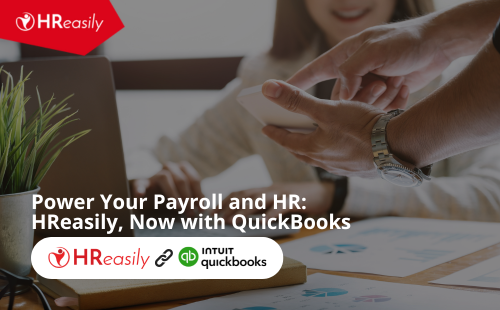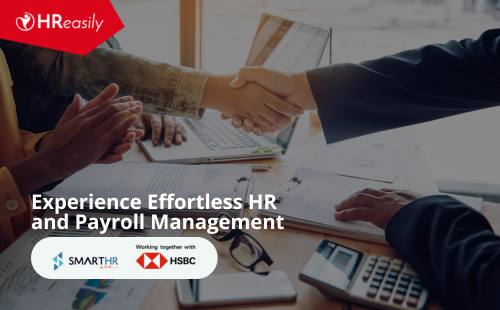
The function of Human Resources (HR) as we know, is currently experiencing a profound evolution. HR has moved beyond the confines of mere personnel record management and administrative duties to become a strategic force at the core of an organisation’s achievements. Within HR’s array of potent tools, HR analytics stands out as a cornerstone, empowering decision-makers with data-driven insights.
Our article this week delves into the realm of HR analytics, shedding light on its transformative impact on the practices of HR professionals, spanning recruitment, talent management, employee engagement, and retention.
The Evolution of HR: From Gut Feeling to Data-Driven
Traditionally, Human Resources (HR) decisions were heavily reliant on gut feelings and intuition. HR professionals, when making critical choices like hiring decisions, performance evaluations, and the formulation of employee engagement strategies, often leaned on their personal judgement. This subjective approach served its purpose in the past, but the landscape of HR has been significantly reshaped as technology has advanced and the volume of available data has expanded exponentially.
In today’s digital age, intuition alone no longer suffices in the realm of HR management. The sheer magnitude of data now accessible to HR departments presents a wealth of untapped opportunities. HR analytics has emerged as the catalyst for this transformation, encompassing the collection, processing, and in-depth analysis of HR-related data. This analytical approach empowers HR professionals to glean profound insights into workforce trends, individual and collective employee performance, and various facets of the employee lifecycle.
These insights, derived from the meticulous examination of data, have the potential to reshape the decision-making landscape within HR. No longer are decisions guided solely by hunches or personal beliefs; they are grounded in empirical evidence and statistical patterns. This paradigm shift from intuition to data-driven decision-making has profound implications. It not only enhances the agility of HR departments but also elevates their level of informed decision-making. HR is transitioning from a function largely reliant on experience and intuition to a strategic entity that embraces data as a key driver for shaping the future of the workforce. This transformation ensures that HR is well-equipped to address the dynamic challenges of the modern business environment and actively contribute to the overall success of the organisation.
The Power of HR Analytics
1. Recruitment and Talent Acquisition
HR analytics stands as a transformative force in the realm of talent recruitment. It empowers HR professionals to pinpoint the most efficient channels for discovering top-tier talent, fine-tune job postings for maximum effectiveness, and even anticipate the success potential of candidates based on historical data. Through the adoption of data-driven hiring strategies, organisations can substantially enhance the calibre of their workforce.
2. Employee Engagement and Retention
Maintaining high levels of employee engagement and satisfaction is indispensable for workforce retention. HR analytics plays a pivotal role in aiding organisations in pinpointing the key drivers of employee engagement and contentment. Through the analysis of data related to factors like work-life balance, recognition, and career growth, HR professionals can craft targeted strategies to bolster employee motivation and mitigate turnover.
3. Performance Management
HR analytics offers valuable insights into both individual and team performance. Through a meticulous examination of key performance indicators (KPIs), HR has the ability to pinpoint areas where employees excel and areas where they may benefit from additional support. This data-driven approach enables HR to create highly targeted coaching and development plans that cater to the specific needs and aspirations of employees.
4. Predictive Analytics
Undoubtedly, one of the most captivating facets of HR analytics lies in its predictive potential. Organisations harness historical data to anticipate forthcoming trends and challenges. For instance, predictive analytics can foresee employee turnover, empowering HR to proactively implement measures aimed at retaining valuable team members.
Overcoming Obstacles with HReasily: Addressing Challenges Head-On
Despite the numerous advantages offered by HR analytics, it is essential to acknowledge and address the accompanying challenges. These challenges encompass various aspects, including data collection and management, data privacy and security, as well as the development of essential skills within the HR team. However, with the right tools and a well-thought-out strategy, organisations can effectively manage these obstacles and harness the full potential of HR analytics.
HReasily, as a comprehensive HR software solution, plays a pivotal role in mitigating these challenges. It offers a robust platform that facilitates efficient data collection, storage, and management. HReasily‘s data management capabilities help organisations organise and centralise their HR-related data, making it easily accessible for analysis and reporting.
In an era where data privacy and security are paramount, HReasily provides advanced security features and compliance measures, ensuring that sensitive HR data remains protected from unauthorised access or breaches. By employing encryption, secure access controls, and regular security audits, HReasily offers peace of mind to organisations concerned about data privacy.
Moreover, HReasily includes features and functionalities that assist in upskilling the HR team. With user-friendly interfaces and built-in analytics tools, HReasily simplifies data analysis and interpretation, enabling HR professionals to make data-driven decisions with confidence.
In conclusion, within the landscape of HR analytics, challenges may indeed arise, yet HReasily serves as a crucial partner in surmounting these barriers. Through the streamlining of data management, bolstering security measures, and nurturing skill development, HReasily equips organisations to fully harness the capabilities of HR analytics, thereby facilitating well-informed and strategic HR decision-making.
Make better HR decisions using HReasily. Try HReasily 30-day trial today !
Prefer a personalised solution? Worry not, our representative can assist you. Email us at [email protected] and share with us your concerns!








